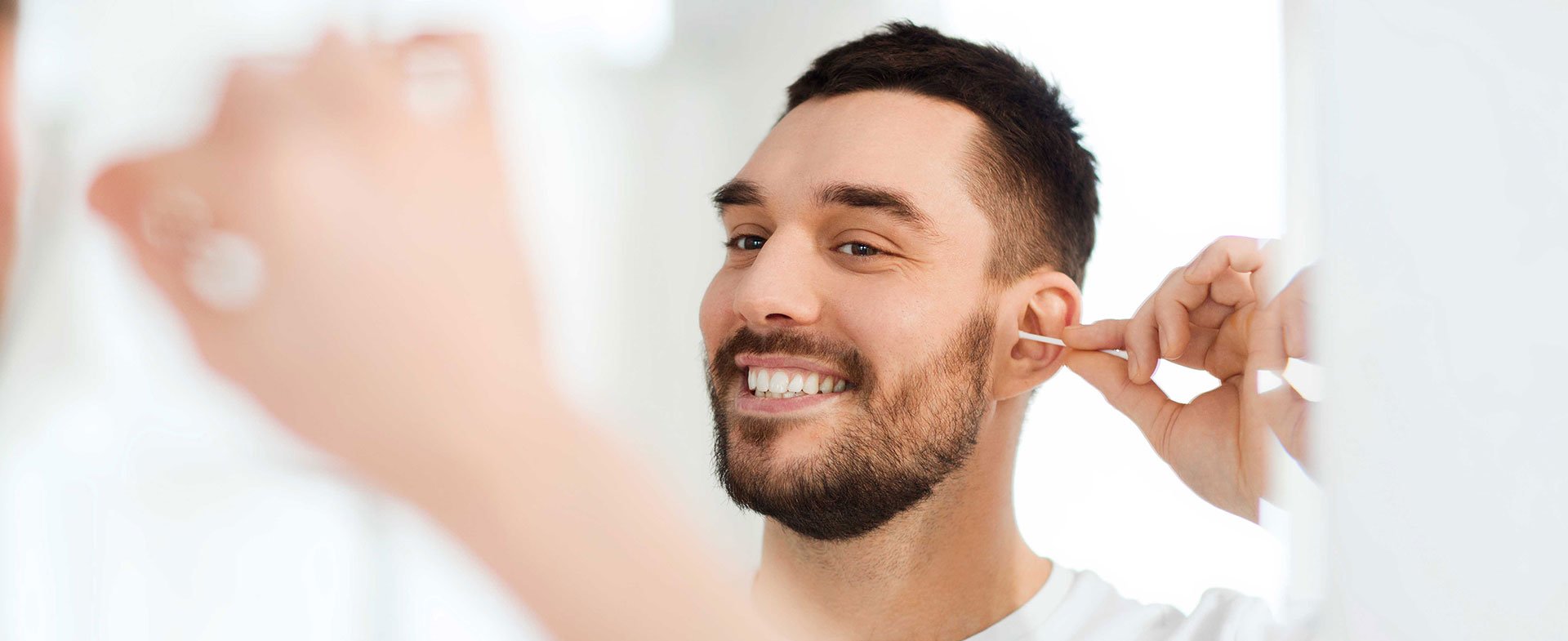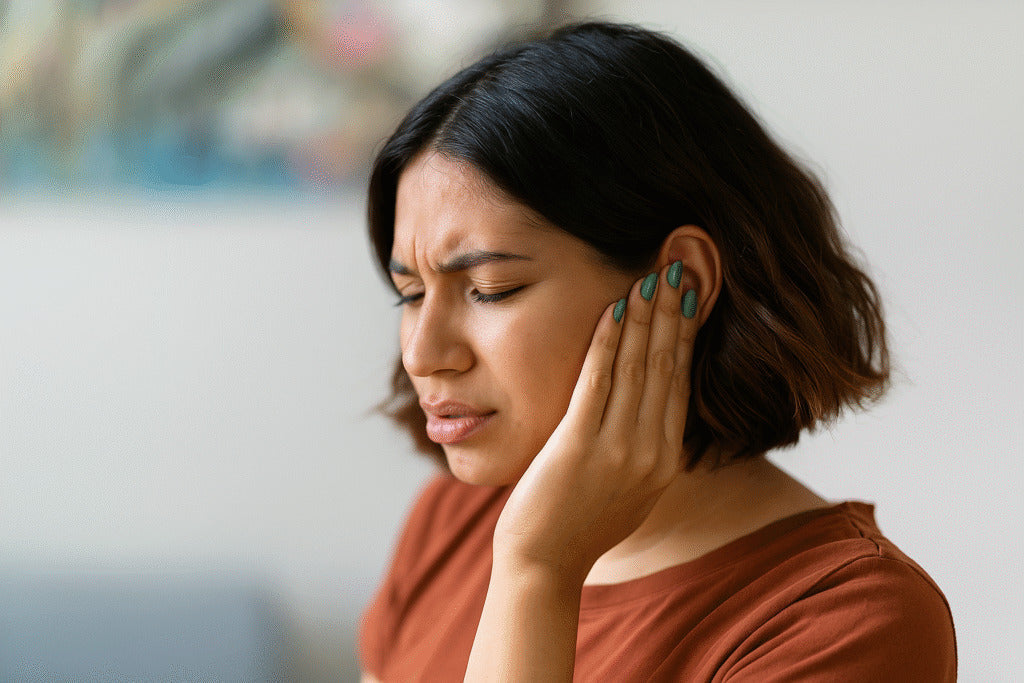" Come again? I didn't catch that. "
If you or a loved one finds themselves asking this more often lately, you're not alone. Many seniors I work with every day don't realize how much their hearing has changed until their world starts to sound muffled, or conversations become exhausting.
The truth is, hearing loss doesn't feel like going deaf overnight. It feels like gradually losing your connection to the world—missing the punchline of a joke, the soft voice of a grandchild, or the ding of the microwave. And often, it's not that you can't hear, it's that you can't *follow*.
As someone who's helped hundreds of older adults navigate this journey, I can tell you: choosing the right hearing aids for seniors isn't just a tech decision—it's a lifestyle one. In this guide, I'll walk you through everything you need to know, using real-world examples and no jargon. You don't need to be a tech expert, just someone ready to hear better.
🚀 Navigate This Post
- ➤ Part 1: Why Hearing Loss in Seniors Needs Special Attention
- ➤ Part 2: The Real Challenges Seniors Face When Choosing Hearing Aids
- ➤ Part 3: Key Features to Look For in the Best OTC Hearing Aids for Seniors
- ➤ Part 4: One Device That Checks All the Boxes — Meet Cearvol's Diamond X1
- ➤ Part 5: Choosing Hearing Aid for Seniors Based on Lifestyle — Not Just Specs
- ➤ Part 6: What About Insurance? Does It Cover Hearing Aids for Seniors?
You may also be interested in:
- Cool, Practically Invisible and Stylish Hearing Aids: Meet the New Era of Hearing Aids
- Best Rechargeable Bluetooth Hearing Aids: Worth It vs. Traditional?
- How Long Do Hearing Aids Really Last? Here's What You're Doing Wrong
- Why Do My Hearing Aids Squeal Every Time? Experts Reveal the Truth
Part 1: Why Hearing Loss in Seniors Needs Special Attention
Age-related hearing loss, medically known as presbycusis, is a gradual decline that usually affects high-frequency sounds first. This means soft sounds and voices with higher pitches may become hard to hear, making it difficult to understand words clearly. For example, you might hear someone speaking but feel like they're mumbling or talking softly even when they aren't.
This hearing loss can make watching TV frustrating because you have to keep turning up the volume. Phone calls become a challenge as voices sound muffled or distorted. Social gatherings can become overwhelming when background noise drowns out speech. Many seniors end up withdrawing from these interactions, which unfortunately can lead to feelings of loneliness and even depression.

That's why finding the best hearing aids for seniors is so important—it's not a luxury, it's about reclaiming your connection to the world around you. Getting the right hearing aid can improve your quality of life by helping you follow conversations clearly and stay engaged with your family and friends.
Part 2: The Real Challenges Seniors Face When Choosing Hearing Aids
If you've ever tried to shop for hearing aids, you know it can be confusing. There are many options out there, and the technical details might feel overwhelming. Some common hurdles seniors face include:
- Not comfortable or familiar with using the internet to research products.
- Medical jargon and complicated specifications that don't translate easily.
- Physical challenges like arthritis making tiny buttons or battery compartments hard to handle.
- Fear of being sold products they don't need or won't know how to use.
- Worry that they won't be able to learn how to operate modern devices.
That's why best over the counter hearing aids for seniors are designed to be straightforward, user-friendly, and affordable. OTC hearing aids offer a practical option for those who want to avoid multiple clinic visits or expensive prescriptions.
Remember George, a 78-year-old retiree I worked with? He was hesitant at first because of his arthritis. But once we found a rechargeable model with large, easy-to-press buttons and simple settings, he felt empowered and much more confident.

Part 3: Key Features to Look For in the Best OTC Hearing Aids for Seniors
When you're shopping for the best otc hearing aids for seniors, here are some features that really make a difference:
1. Easy Controls
Look for hearing aids with big buttons and simple menus. Complex controls can be frustrating. The device should be intuitive enough to use without constantly referring to a manual.
2. Rechargeable Batteries
Changing tiny batteries can be a hassle and sometimes impossible if you have limited dexterity or vision problems. Rechargeable hearing aids eliminate this stress—you just place them on a charger overnight and you're ready to go.

3. Bluetooth Connectivity
This is a game-changer for many seniors. Bluetooth-enabled hearing aids let you stream audio directly from your phone, tablet, or TV. That means clearer calls and a better TV-watching experience. You can learn more about affordable bluetooth hearing aids that fit your budget and lifestyle.
4. Comfortable Fit
You want a hearing aid you can wear all day without discomfort. Look for soft ear tips, lightweight designs, and options that fit discreetly behind or in your ear.
These features are exactly what make some OTC hearing aids ideal for seniors—they balance technology and simplicity.
Part 4: One Device That Checks All the Boxes — Meet Cearvol's Diamond X1
If you're wondering whether there's a hearing aid that truly balances comfort, features, and ease of use, I highly recommend the Cearvol Diamond X1 Rechargeable Hearing Aids.
This model was designed specifically with seniors in mind. It combines all the must-have features: rechargeable batteries, Bluetooth connectivity for easy streaming, and simple controls that don't overwhelm. Plus, it's comfortable to wear and comes with app support for those who want a little extra customization without complexity.
Many of my clients find it easy to use without constant help, which boosts their confidence and encourages regular use—the key to better hearing.
Part 5: Choosing Hearing Aids for Seniors Based on Lifestyle — Not Just Specs
If there's one thing I've learned from working with seniors over the years, it's that no two people use their hearing aids the same way. That's why when someone asks me what the best hearing aids for seniors are, I usually reply: "Tell me how you live, and I'll tell you what you need."
Your lifestyle plays a major role in finding the right hearing aid—not just the audiogram or the price tag. Here are four common senior lifestyles, and what to look for if you find yourself in one (or more) of these categories:
1. Social and Engaged
If you're often attending community events, family gatherings, or church services, background noise can make it hard to keep up with conversations. Many of my patients tell me they feel left out—not because they can't hear, but because they can't focus on the right sounds.
For this group, features like noise reduction, directional microphones, and scene-based sound modes are incredibly useful. These help pick up speech while softening background chatter so you don't miss important words in noisy places.
➡️ In some cases, RIC or BTE models may offer stronger directional processing. But even some modern OTC hearing aids with multiple sound environments—like conversation, dining, or outdoor—can handle these situations beautifully.

2. Calm and Home-Centered
Some seniors prefer the comfort of home: watching TV, chatting with loved ones, or doing a bit of reading. If that's you, you may not need all the bells and whistles—but you do need clear, consistent sound that doesn't get in your way.
What matters here is speech clarity, low listening effort, and easy connectivity (especially for phone calls or TV). A simpler device with good core amplification and perhaps Bluetooth support can make all the difference.
➡️ Rechargeable ITE or ITC hearing aids can work well in this case. Their discreet size and "set-it-and-forget-it" functionality offer comfort without complexity.

3. Active and Outdoorsy
I've met plenty of older adults who are more active than people half their age. Whether it's walking the dog, gardening, golfing, or traveling, they need devices that can keep up—without being delicate or high-maintenance.
If that sounds like you, you'll want hearing aids that are waterproof, secure-fitting, and reliable across environments. You don't want to worry about sweat or light rain, or run out of battery mid-walk.
➡️ Many active seniors prefer rechargeable hearing aids for this reason—they're convenient, and you don't need to fiddle with batteries in unpredictable places.

4. Tech-Friendly (or Tech-Avoidant)
Some seniors love their smartphones. Others avoid them like the plague. And that's okay—because the best hearing aids for seniors don't assume everyone's the same.
If you enjoy using apps or want to stream music, podcasts, or calls, look for Bluetooth-enabled models that integrate with iOS or Android. These can make your hearing aid double as a wireless headset.
If, on the other hand, you prefer to keep things simple, go for devices with manual buttons, easy charging, and minimal setup. Sometimes, "simple and solid" is the smartest solution.
If you want a comprehensive overview of hearing aid options, check out this guide on everything about hearing aids.
Part 6: What About Insurance? Does It Cover Hearing Aids for Seniors?
One common question I get is: what insurance covers hearing aids for seniors?
In the United States, most Medicare plans do not cover hearing aids or hearing exams. Medicaid coverage varies by state, and some private insurance plans offer partial coverage or discounts, but full coverage is rare. You can find more details in our post about does Medicare cover hearing aids.

Diamond X1 - Best Hearing Aids with Bluetooth
Newcomer Price
$249.99 $309.99
- ✔ Adaptive sound modes for clear hearing.
- ✔ Bluetooth for calls & streaming.
- ✔ App-controlled, customizable adjustments.
- ✔ Rechargeable & fast charging.
- ✔ Ideal for mild to moderate hearing loss.
Waiting for insurance approval can delay treatment and reduce the time you have to adjust and benefit from hearing aids. That's why many seniors turn to OTC hearing aids as a practical, affordable solution. The best OTC hearing aids for seniors combine convenience, cost savings, and effective hearing support without the wait.
Conclusion: Don't Wait to Rejoin the Conversation
The sooner you address your hearing loss, the sooner you can enjoy clearer conversations, deeper connections, and a richer quality of life.
Look for hearing aids that are practical, comfortable, and fit your unique lifestyle. Remember, the goal isn't to own the most expensive or high-tech device—it's to find the one that helps you hear better every day.
For more detailed information and recommendations, check out our posts on best otc hearing aids.
Taking this step is an investment in your independence and joy. Don't wait to hear the world clearly again.





コメントを書く
全てのコメントは、掲載前にモデレートされます
このサイトはhCaptchaによって保護されており、hCaptchaプライバシーポリシーおよび利用規約が適用されます。